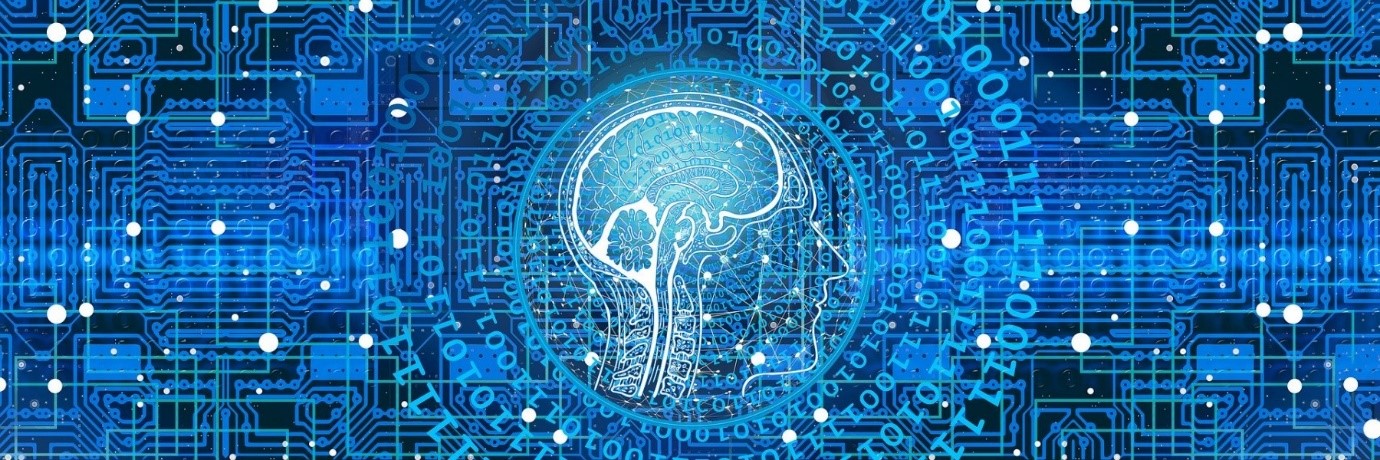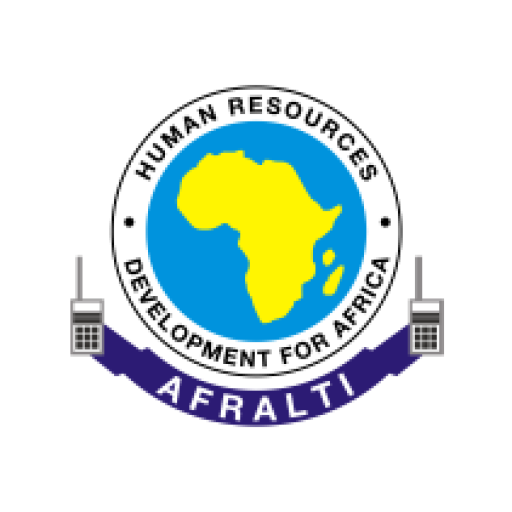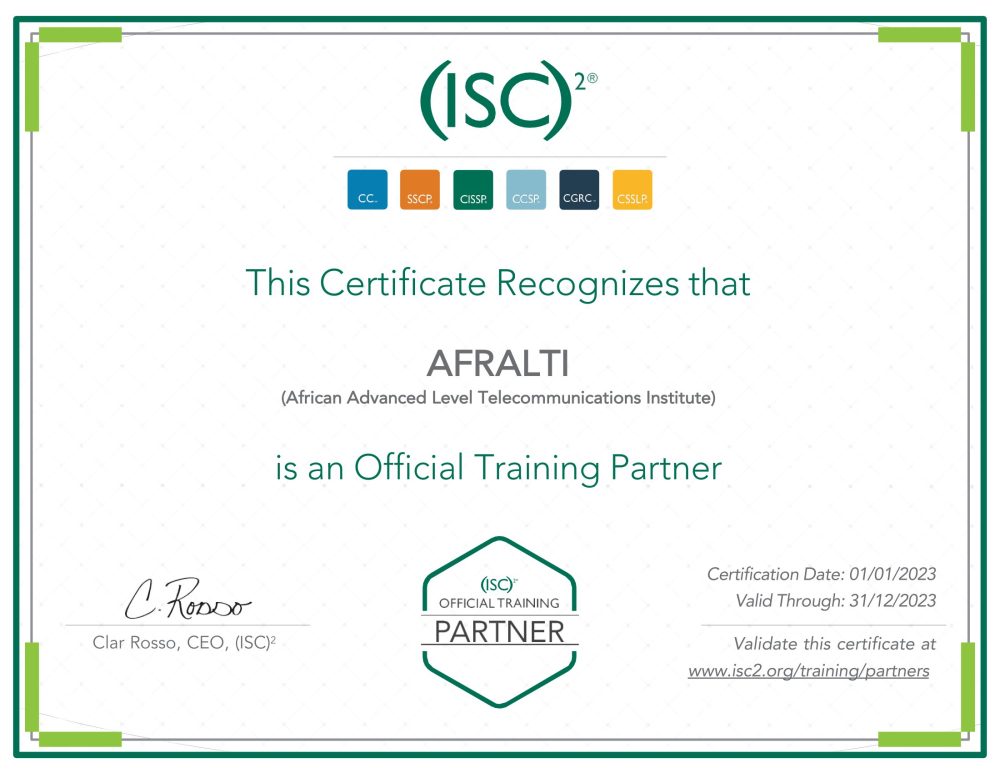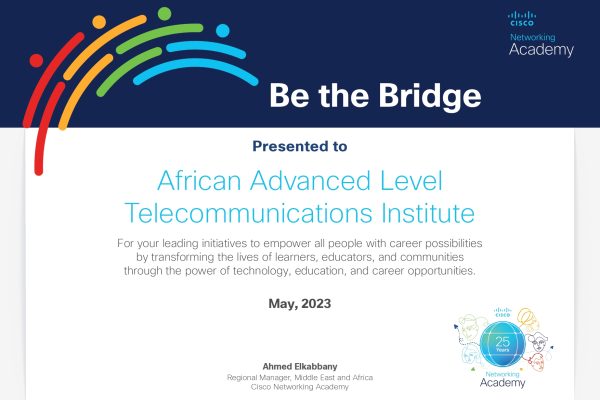
Could 4IR Related TRAINING help achieve the Sustainable Development Goals?
Could 4IR Related TRAINING help achieve the SDGs
Article by: Keith Muturi. Business Development Officer at AFRALTI.
In 2015, all the 193 United Nations member states adopted the 17 SDGs( Sustainable Development Goals); a 15-year plan as part of the 2030 Agenda for Sustainable Development. The Sustainable Development Goals are a universal call to action to end poverty, protect the planet and improve the lives and prospects of everyone, everywhere. 
The 4IR (The Fourth Industrial Revolution)
How will we then achieve these goals and what role should the Government and organizations play as the demand to adopt 4IR increase? to answer this question we will then need to to understand the Fourth industrial revolution.
4IR is simply a way of describing the blurring of boundaries between the physical, digital, and biological worlds. It’s a fusion of advances in artificial intelligence (AI), robotics, the Internet of Things (IoT), 3D printing, genetic engineering, quantum computing, and other technologies.

The technological world is ever-changing, and the inevitable new technologies are disrupting our world every single day. According to PWC The technologies of the 4th Industrial Revolution (e.g. Artificial Intelligence, Block chain and the Internet of Things, among others) are rapidly becoming mainstream and enabling a transformation of entire systems and networks. Widespread change can be seen across companies, industries, countries and society. These profound shifts, touching nearly every sector, from incumbents being disrupted to entirely new 4IR-enabled business models, are creating new markets at an expedited speed and scale. Based on this, it is evident that as organizations and businesses, become future proof, we must prepare our future workforce for the 4IR revolution.
What should Business and organizations do?
1.Training
According to Deloitte’s publication Preparing tomorrow’s workforce for the Fourth Industrial Revolution For business: A framework for action, Around the world, many employers who already are struggling to fill job vacancies cast a wary eye towards the future. The existing mismatch between youth skills and employer needs threatens to become even wider as Industry 4.0 transforms business and jobs faster than workers can adapt. It is indeed projected that Two-thirds of today’s five-year-olds will, in 15 years find themselves in jobs that don’t exist today. And the jobs that do exist won’t necessarily be located where the job seekers live. This shades more light on the need to adopt Emerging technologies and invest in equipping our current and future workforce.
The first step towards training is to test your readiness for the 4IR. There are some tools that administer a simple step by step test that can be used to identify organizational and personal technological gaps. For instance, AFRALTI in collaboration with Upskills Global has partnered to equip today’s workforce with the essential skills needed to be highly effective in their workplace by providing an upskilled and adaptable online training through a Personal Effectiveness Assessment which highlights readiness for the 4IR in terms of soft skills.
The Personal Effectiveness Assessment gives you a valuable benchmark for where you stand on the seven Personal Effectiveness Skills that are critical for career success today. The Seven Personal Effectiveness Skills Relate to Teamwork, Critical Thinking, and Emotional Intelligence. Taken together, these skills comprise the talent and ability that companies are seeking today.
Such initiatives help organizations in identifying needs and equipping their workforce with the required knowledge. As identified above, other 4IR areas that organizations need readiness such as Artificial Intelligence, Block chain and the Internet of Things, among others also have their set training. For instance, the Paris and Boston based Ai Institute and AFRALTI are offering the sought after AI certification. With a key focus on Telecoms, financial institutes and other organizations that generate massive amounts of data, equipping their employees with these skills will leverage the technological advantages for future preparedness.
2. Adoption of policies and regulations
Another key area to consider is, The Policies related to 4IR and the adoption of new technologies. To achieve this, governments and Regulators need to put up policies and structures that will help drive the 4IR agenda. According to the UN’s SDGs, one of the key goals is to eradicate poverty. This means that people need to have relevant skills that will make them employable and relevant in the job market. Some of these skills will also be applied in innovating for better ways to protect the planet and end poverty. Government sectors and organizations both in the private and public sector should be aware of the existing policies and also be champions for new policies.
Many experts believe that, adoption of the emerging technologies will lead to the realization of the SDGs.
To have an in-depth knowledge of the policies, organizations and the public should take advantage of forums and meet-ups that enlighten people in this area. To learn more about this and participate in similar training please feel free to reach me.
Article by: Keith Muturi. Business Development Officer at AFRALTI.


